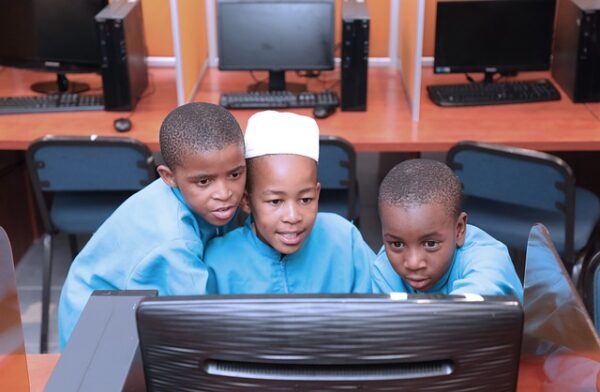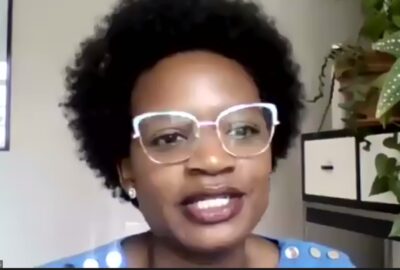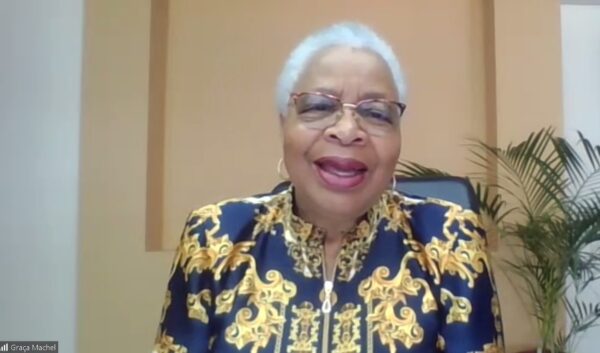Early childhood development (ECD) is recognised and entrenched within the United Nations (UN) Sustainable Development Goals (SDGs) 2030 and African Union (AU) Agenda 2063. Aspirations- An Africa whose development is people-driven, relying on the potential of African people, especially its women and youth, and caring for children, and the
SDGs prioritise ending all forms of poverty, malnutrition, preventable deaths; abuse; exploitation and violence; access to quality pre-primary education and a legal identity from birth concerning ECD. These are further reinforced by AU’s Agenda 2040 for children. Aspiration 3 – Every child’s birth and other vital statistics are registered. Aspiration 4 – Every child survives and has a healthy childhood, and Aspiration 5- Every child grows up well-nourished and has access to life’s necessities.

Stock Image by aymanfakhry1999 from Pixabay.
The Graça Machel Trust, in collaboration with the Pan African CSO forum, managed to identify systemic and structural barriers that impede the effective implementation of ECD policies and programmes across the continent through the ECD Rapid Mapping exercise. The mapping exercise confirmed the ever-growing need for an integrated approach to the child’s learning and development, which is guided by the World Health Organisation’s Nurturing Care Framework.
Recently, the Graça Machel Trust (GMT), in partnership with the Pan African CSO Forum and the Africa Early Childhood Network (AfECN), hosted a High–level virtual ECD Advocacy Seminar to redefine the ECD advocacy agenda. The virtual event took place on November 30th. It primarily focused on identifying concrete actions for advocacy asks which can be used to address systemic and structural barriers that impede the effective implementation of ECD policies and programmes across the continent.
Among the day’s speakers were Ms Felistus Motimedi; Pan – African CSO Forum Secretariat, Ms Alicia Lutomia, Africa Early Childhood Network Programme Officer. Mrs Graça Machel, Founder and Board Chairperson of GMT, Ms Caroline Dusabe Save the Children Australia – Pacific Education Senior Advisor, Mr Mongi Jebari, Ministry of Education – Tunisia AU CESA ECED Cluster Co-Chair: Policy & Advocacy Working Group, Ms Carolyn Medel – Anonuevo UNESCO Regional Office for Southern Africa – Head of Education, Ms Phelesia Catherine Akasa World Bank – ECD Consultant and Melizsa Mugyenyi, Chief Executive Officer: GMT who gave the closing remarks.

GMT CEO Melizsa Mugyenyi.
Moderated by Richard Montsho, Child Rights Programme Manager for GMT, the session began with a presentation by Ms Yvonne Tagwireyi. She addressed the state of ECD and some of the efforts being made to improve ECD within Africa.

GMT Founder Graça Machel speaking at ECD Advocacy Seminar.
Mrs Graça Machel spoke in her capacity as Founder of GMT and a global advocate for children. In her keynote address on what should be the core focus of the Pan-Africa ECD Advocacy Agenda, she emphasised child education, among other things. “In my view, Early Childhood Education (ECD) is the foundational bedrock of human capital development. Without investment in ECD, the foundation of human capital can’t be realised,” she said. Mrs Machel added that national ECD policies should be accompanied by a costed implementation plan that supports precise coordination between national and local government alongside all other partners in different sectors, for example, nutrition and health.
This was followed by panel discussions on several topics, including the existing regional and global policy options and opportunities for ECD. Emphasis made on advocacy was on how best to secure sustainable investment in ECD within the continent and the required advocacy actions to push for the integrated ECD policy and programming within the continent. The other parts of the seminar featured reflections and inputs from key stakeholders on what concrete steps should we take to address systemic and structural barriers that impede the effective implementation of ECD policies and programmes across the continent. This served as an open call to all key stakeholders, including ECD Practitioners, Civil Society Organisations, Regional Economic Communities, Key government officials, Policy-makers, UN agencies, Development Partners, Community Leaders, Media and Private Sector to join the efforts to put ECD back on the continent’s priorities.
Watch the full session here:










 The Trust supports and mobilises civil society networks on issues of ending child marriage, ending violence against children, ending female genital mutilation and promoting children’s rights, to carry out advocacy and action across Africa. Special focus is placed on Malawi, Mozambique, Tanzania and Zambia where child marriage continues to be a problem largely driven by poverty, gender inequality, harmful traditional practices, conflict, low levels of literacy, limited opportunities for girls and weak or non-existent protective and preventive legal frameworks.
The Trust supports and mobilises civil society networks on issues of ending child marriage, ending violence against children, ending female genital mutilation and promoting children’s rights, to carry out advocacy and action across Africa. Special focus is placed on Malawi, Mozambique, Tanzania and Zambia where child marriage continues to be a problem largely driven by poverty, gender inequality, harmful traditional practices, conflict, low levels of literacy, limited opportunities for girls and weak or non-existent protective and preventive legal frameworks.




 Education is a fundamental right for all children, which is also a vehicle for social, economic and political transformation in communities, countries and the African continent at large. Recent studies indicate a lack of progress in some of the critical commitments aimed at improving education quality, access, retention and achievement, particularly for girls. In most African countries, girls may face barriers to learning, especially when they reach post-primary levels of education. By implementing multi-dimensional approaches to education which includes core education, personal development, life skills and economic competencies, the Trust partners with funding partners, governments, civil societies and the private sector to improve education access.
Education is a fundamental right for all children, which is also a vehicle for social, economic and political transformation in communities, countries and the African continent at large. Recent studies indicate a lack of progress in some of the critical commitments aimed at improving education quality, access, retention and achievement, particularly for girls. In most African countries, girls may face barriers to learning, especially when they reach post-primary levels of education. By implementing multi-dimensional approaches to education which includes core education, personal development, life skills and economic competencies, the Trust partners with funding partners, governments, civil societies and the private sector to improve education access.

 The Nutrition and Reproductive, Maternal, New-born, Child and Adolescent Health and Nutrition, (RMNCAH+N) of the Children’s Rights and Development Programme aims at promoting the Global Strategy for women, children and adolescents’ health within the Sustainable Development Goals (SDG) agenda. The strategy emphasises on the importance of effective country leadership as a common factor across countries making progress in improving the health of women, children and adolescents.
The Nutrition and Reproductive, Maternal, New-born, Child and Adolescent Health and Nutrition, (RMNCAH+N) of the Children’s Rights and Development Programme aims at promoting the Global Strategy for women, children and adolescents’ health within the Sustainable Development Goals (SDG) agenda. The strategy emphasises on the importance of effective country leadership as a common factor across countries making progress in improving the health of women, children and adolescents. Through its Early Childhood Development (ECD) plan, The Trust will seek to put into action the new science and evidence Report that was presented by Lancet Series on Good and early development – the right of every child. This will be achieved by mobilising like-minded partners to contribute in the new science and evidence to reach all young children with ECD. The Trust’s goal is to be a catalyst for doing things differently, in particular, to rid fragmentation and lack of coordination across ECD sectors. In response to evidence showing the importance of political will in turning the tide against the current poor access and quality of ECD. Even before conception, starting with a mother’s health and social economic conditions, the early years of a child’s life form a fundamental foundation that determines whether a child will survive and thrive optimally.
Through its Early Childhood Development (ECD) plan, The Trust will seek to put into action the new science and evidence Report that was presented by Lancet Series on Good and early development – the right of every child. This will be achieved by mobilising like-minded partners to contribute in the new science and evidence to reach all young children with ECD. The Trust’s goal is to be a catalyst for doing things differently, in particular, to rid fragmentation and lack of coordination across ECD sectors. In response to evidence showing the importance of political will in turning the tide against the current poor access and quality of ECD. Even before conception, starting with a mother’s health and social economic conditions, the early years of a child’s life form a fundamental foundation that determines whether a child will survive and thrive optimally.